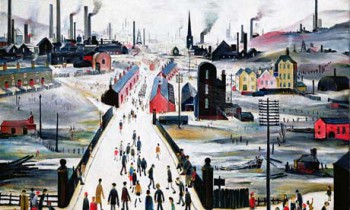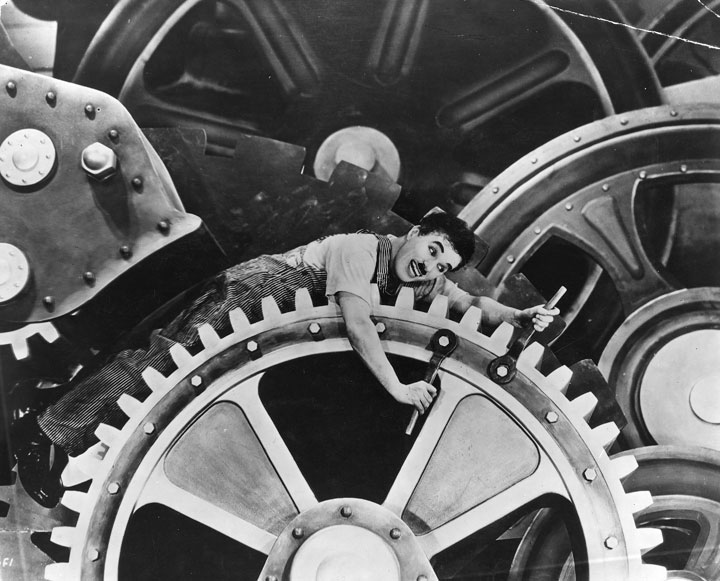
One of the most annoying terms in the political dictionary is “anarcho-capitalism”.
It’s annoying because it describes something that does not exist, cannot exist. I know there are people out there who claim to be “anarcho-capitalists” but this no more means that anarcho-capitalism exists than my claiming to be a unicorn would prove that unicorns actually do exist.
Their use of the word “anarchism” in conjunction with “capitalism” betrays a fundamental lack of understanding of what anarchism is. Anarchism is intrinsically opposed to all the “values” that lie behind capitalism, not least private property and a money-based society.
People who call themselves “anarcho-capitalists” are simply libertarian capitalists. Why don’t they just call themselves that and leave anarchism alone?
I have a similar reaction to the related issue of anarchism and industrialism. To me it is obvious that the two are irreconcilable. Anarchism is intrinsically opposed to all the “values” that lie behind industrialism, not least the exploitation of mass labour for profit and the levels of social coercion required to make such a society function.
But the moment you start to challenge industrial society in anarchist circles, you are likely to find yourself under ideological attack.
Technology is not the problem, it’s all about who controls it, you are told. So fracking would suddenly be fine if Cuadrilla was a workers’ co-operative? Chemical plants would miraculously stop polluting the planet if they were managed by collectives of anarcho-syndicalists?
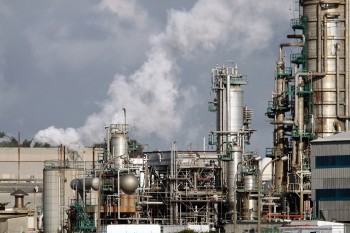
It’s not just about who industry is controlled by, but about what it does, what it is!
I find it hard to believe that anyone’s idea of a future anarchist society could include factories of any kind. Who would be working in them if we didn’t live in a capitalist society where people desperately need to earn money to survive? Why would anyone work in a factory if they didn’t have to? In an anarchist society, what kind of social, economic or physical compulsion could be applied to make people work in factories if, as seems likely, they didn’t particularly want to?
Why do anarcho-industrialists think that factories came into existence in the first place? To help the workers? To make life better for all of us? Because we collectively needed the mass production of the things that factories make?
Or was it so that a small group of entrepreneurs could make profit out of them? Isn’t industrial society entirely a product of capitalism? Why would anyone who opposed capitalism support the physical infrastructure that makes it possible?
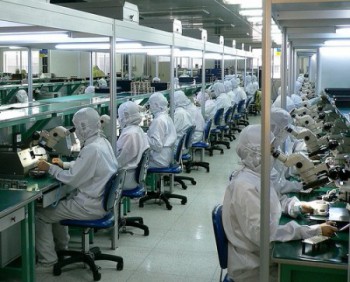
In the UK, it’s common for anyone who declares themselves an opponent of industrial society to be labelled a “primitivist”. It is considered a particular sin to express anti-industrial sentiments without branding yourself a “primitivist” by way of self-exclusion from the anarchist fold – this means you are committing the heresy of “conflating anarchism with primitivism”.
Let’s be clear – the actual conflation here is between anti-industrialism and primitivism. They are not identical. While all primitivists must necessarily be anti-industrial, every anti-industrialist does not necessarily have to be a primitivist.
It is no coincidence, I suspect, that anarcho-primitivism as a term originated in the USA, where the transition from “primitive” pre-colonial society to modern industrial society was relatively fast and traumatic.
In Europe and Asia, that change has taken a lot longer, and there are many kinds of historical forms of social organisation that are neither primitive nor industrial.
I can see the strength in the primitivist argument that all these intermediary stages are part of the process that led to contemporary industrial society. From this perspective, seeking permanence and stability in one of these pre-industrial stages would be something like arguing that a man falling off a cliff will be fine as long as he stops half way down.
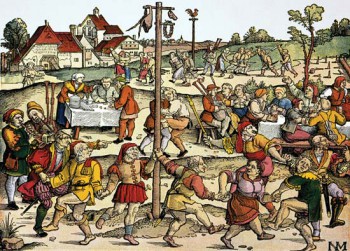
But, despite that, the possible future anarchist society that I hold in my heart tends to look more like the Middle Ages than the Stone Age. We wouldn’t be lumbered with all that feudalism, misogyny and religious intolerance, of course, because this wouldn’t be the actual Middle Ages we were living in, but a free post-industrial society with a similarly low level of industrialisation.
Inspiration from the Middle Ages is not at all unknown among anarchists. Peter Kropotkin, Gustav Landauer and, more recently, Herbert Read are all good examples. William Morris, who today looks more like an anarchist than a socialist, was another idealist who despised the industrial society imposed on humanity by the capitalist system.
In France there is currently a powerful anti-industrial current in the wider anarchist movement which is not dismissed as “primitivist”.
So what about the UK today? We seem to have an anarchist movement that pays lip service to environmental issues, takes part in environmental struggles, and yet does not dare to challenge the actual existence of the industrial system.
This is probably just a reflection of our society as a whole. We in Britain have been industrialised for so many generations now that we are no longer even aware of what has happened to us.
But aren’t anarchists supposed to be different? Aren’t we supposed to cut through the crap which is spoon-fed to us by capitalist society and challenge the deepest, most ingrained assumptions by which this exploitative system maintains its control?
Can’t we stand up and say that in an anarchist society there would be no more factories, motorways or airports, just as we are happy to say there would be no armies, police or prisons?
If we can’t, then what exactly is this anarchist vision which sustains and motivates us? What a strange world it would be, in which newly-freed slaves voluntarily kept going the machinery that had exploited and tormented them, poisoned their air, their water and their soil?
Anarcho-industrialism, it seems to me, is just as much an oxymoron as the self-contradictory nonsense of so-called “anarcho-capitalism”. Neither of them makes any sense at all.
